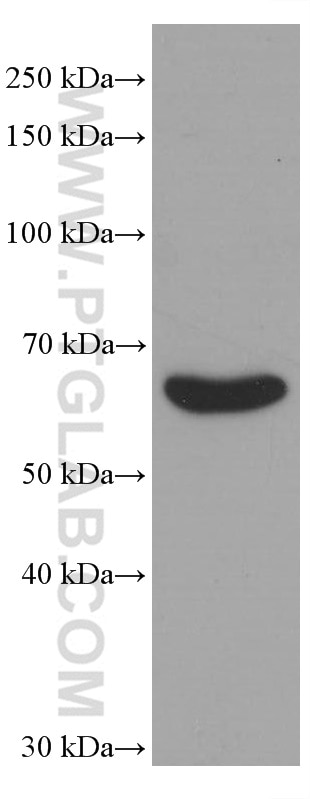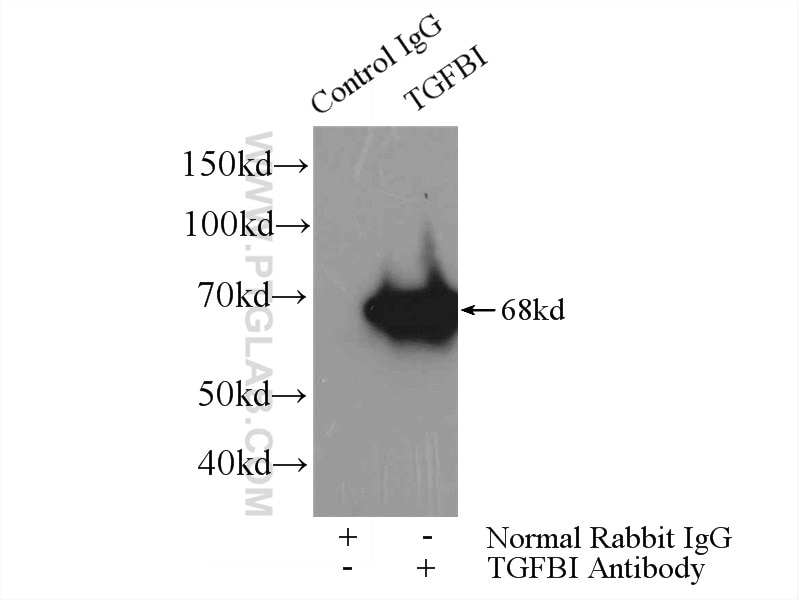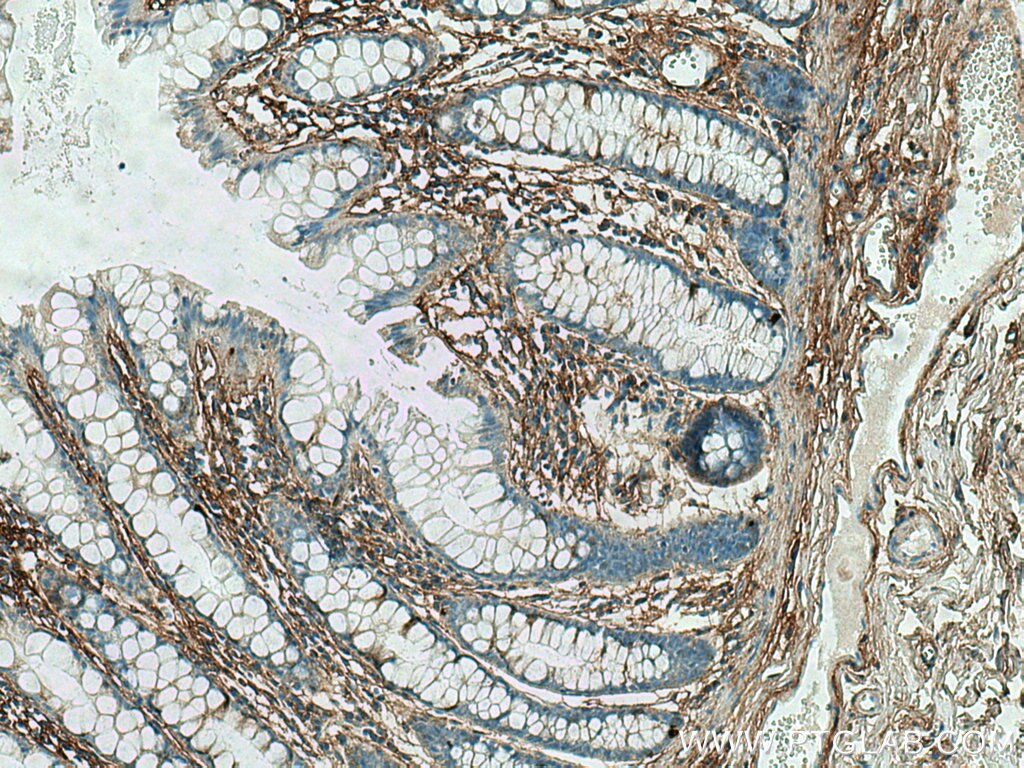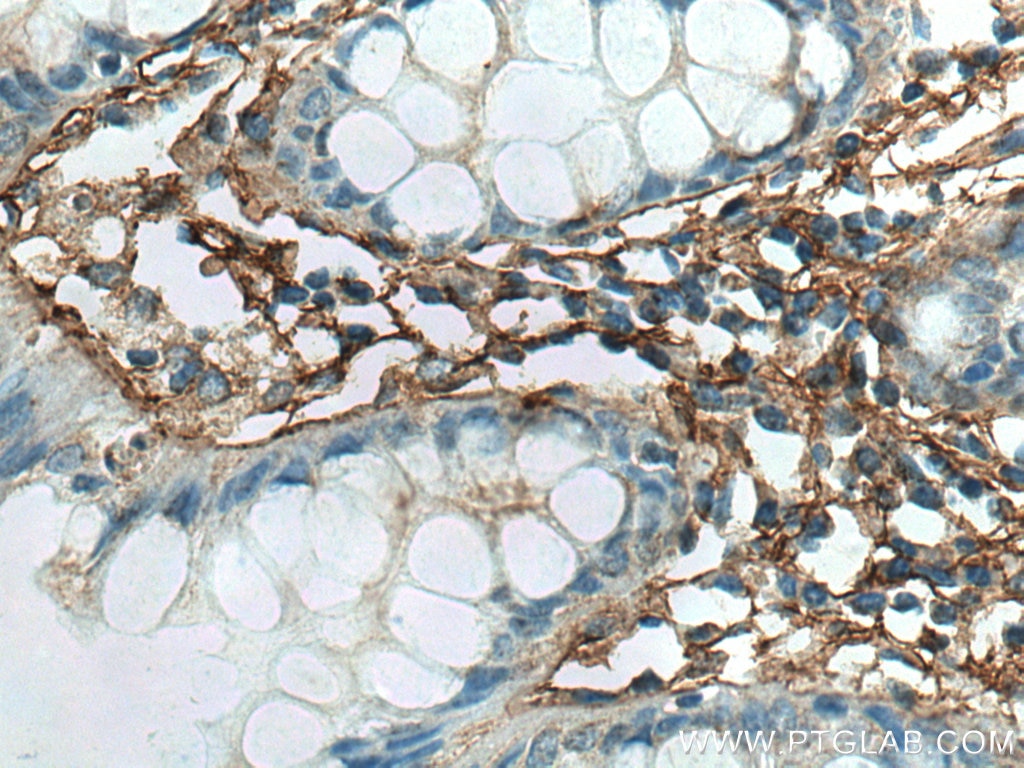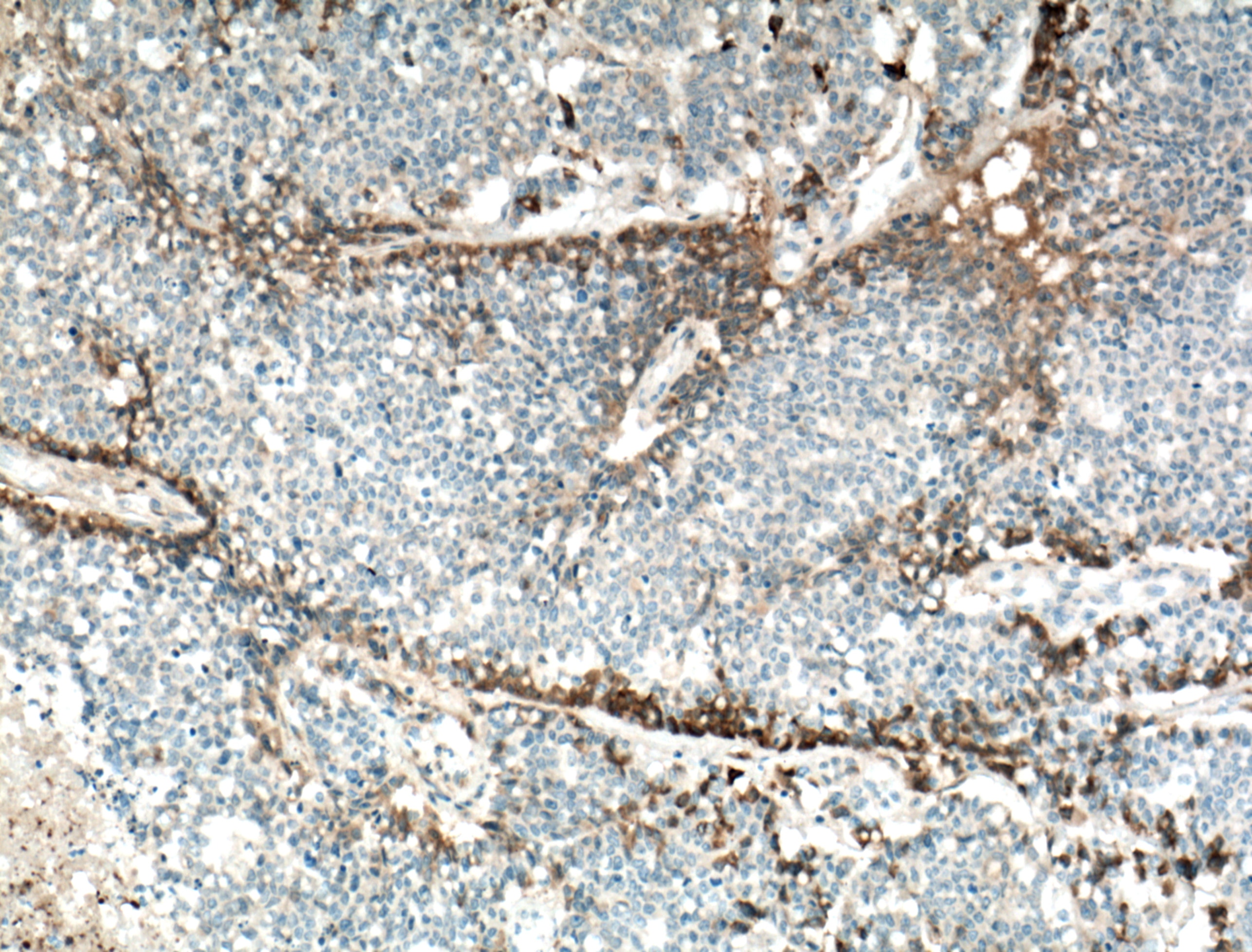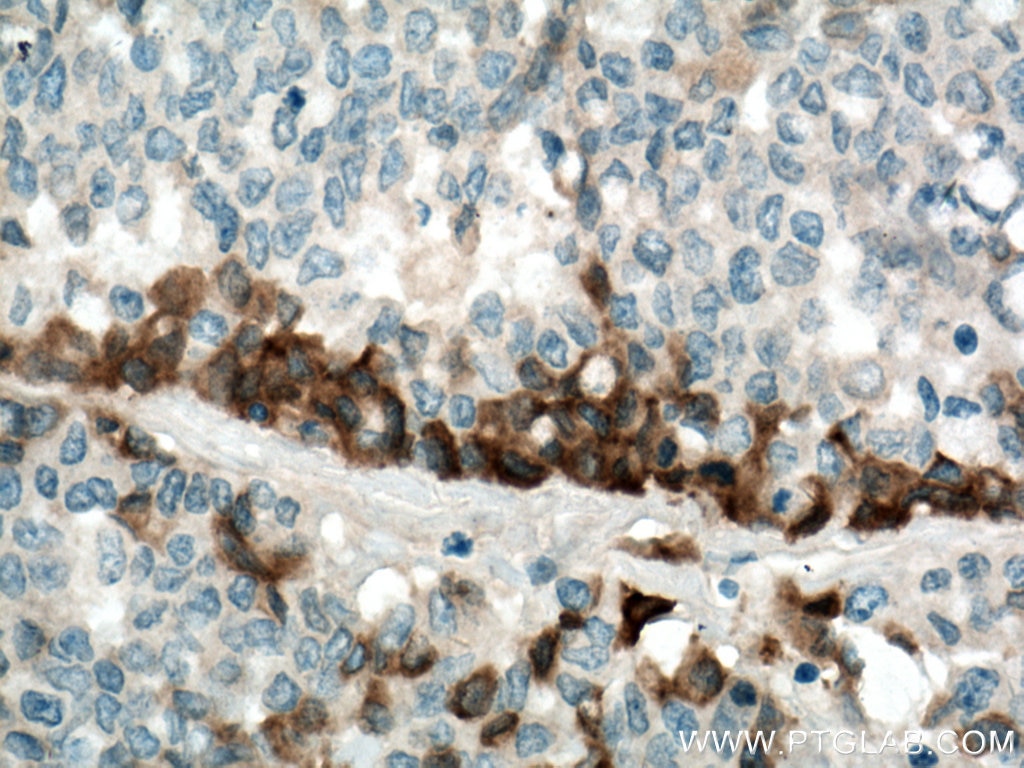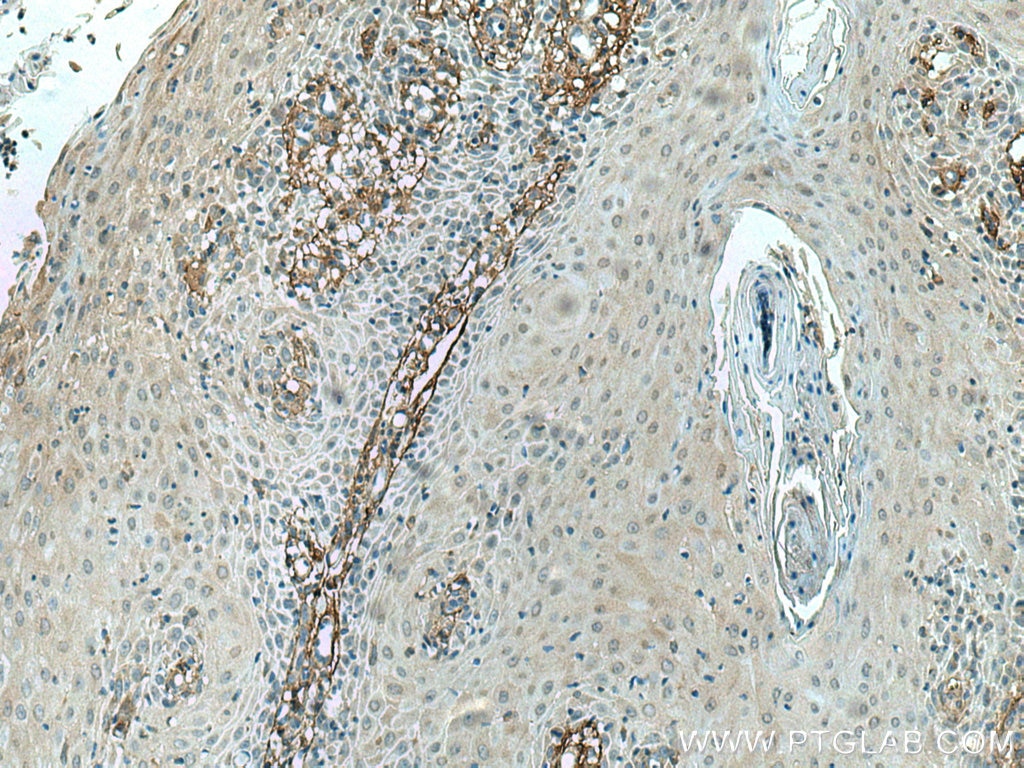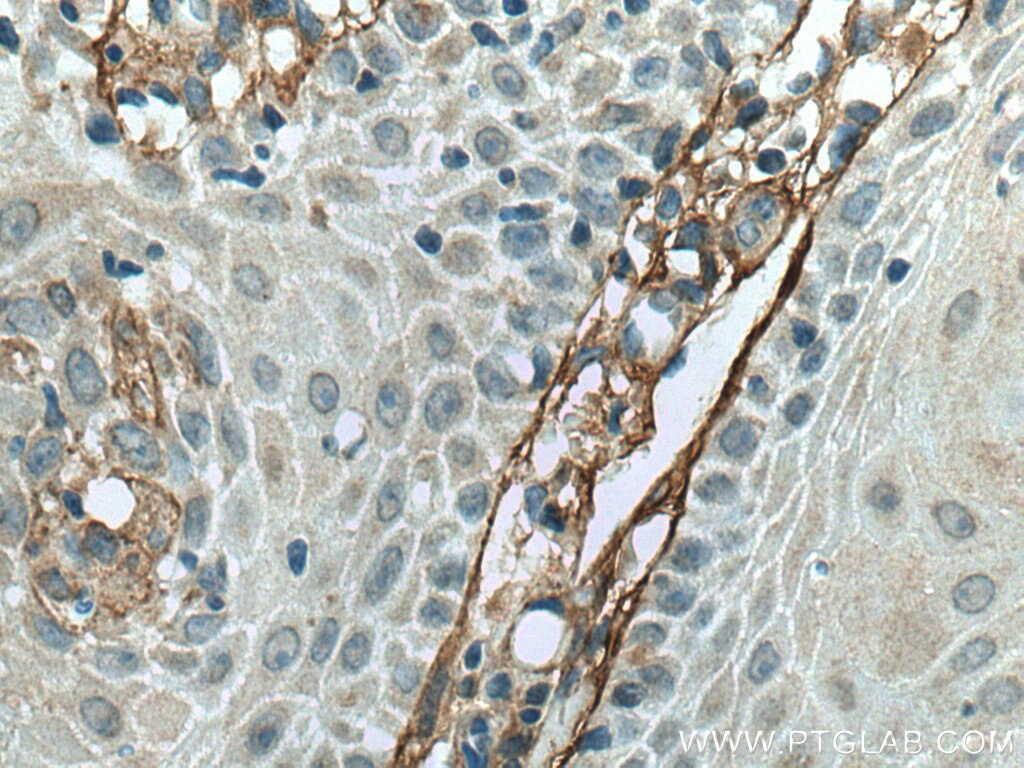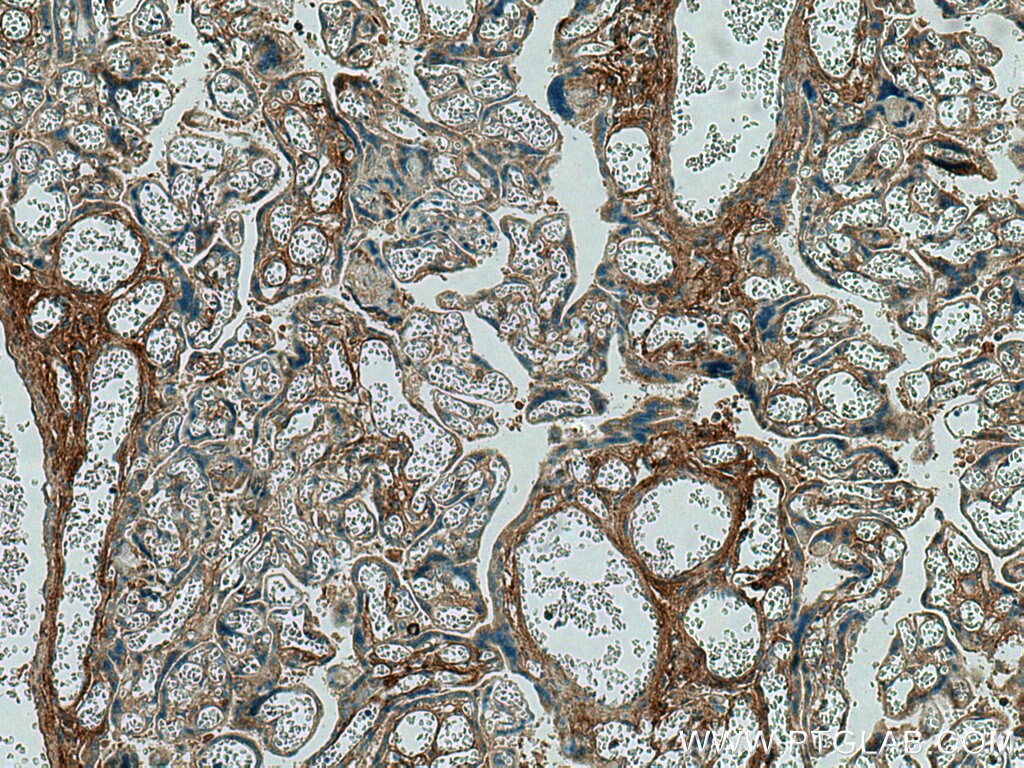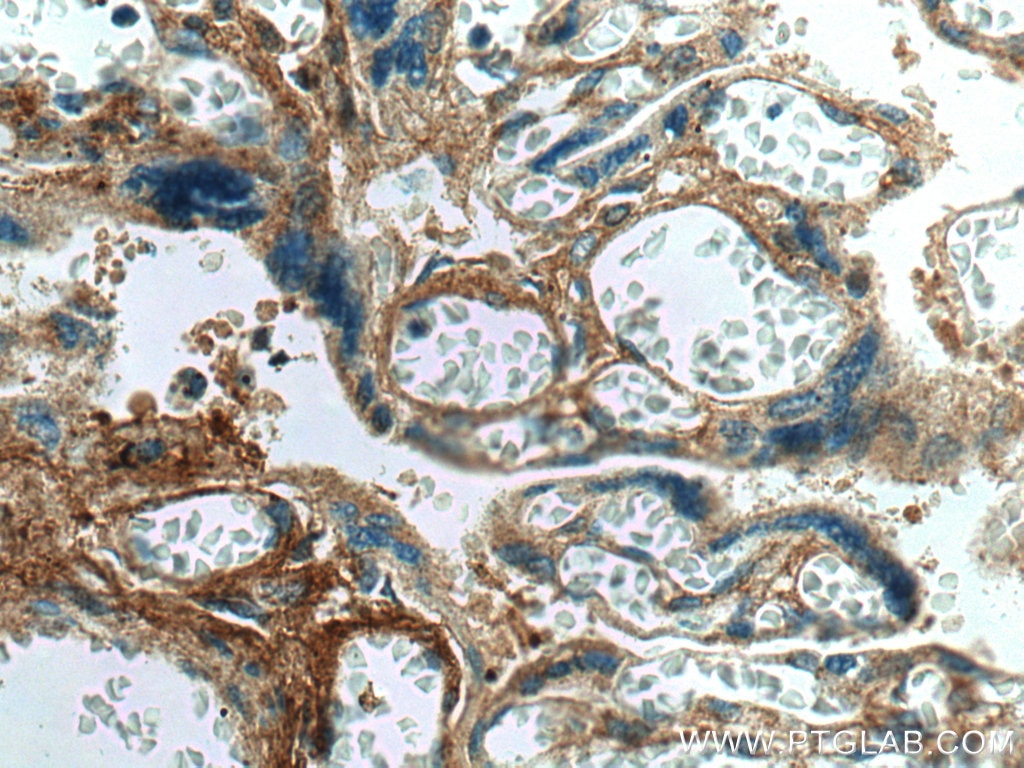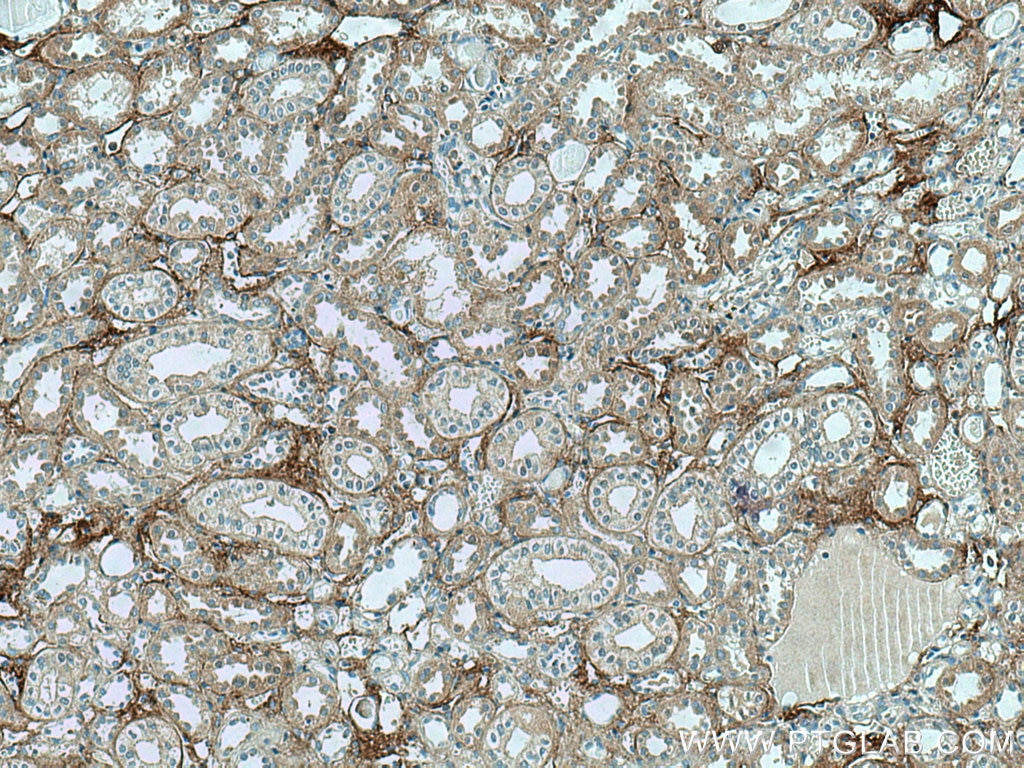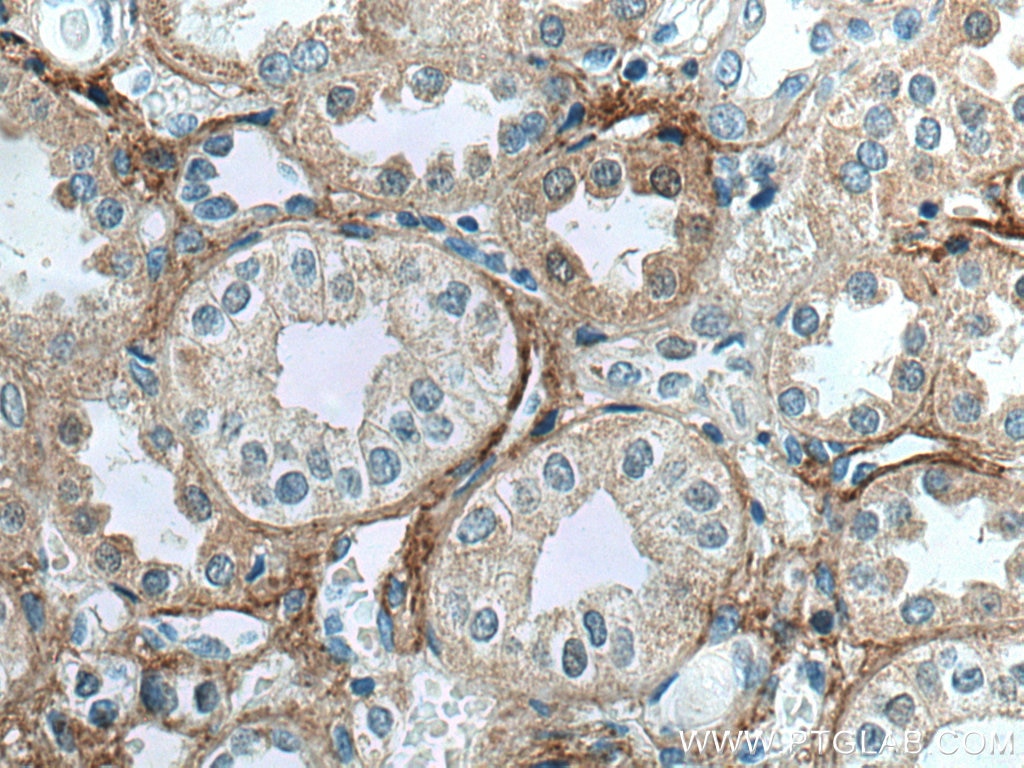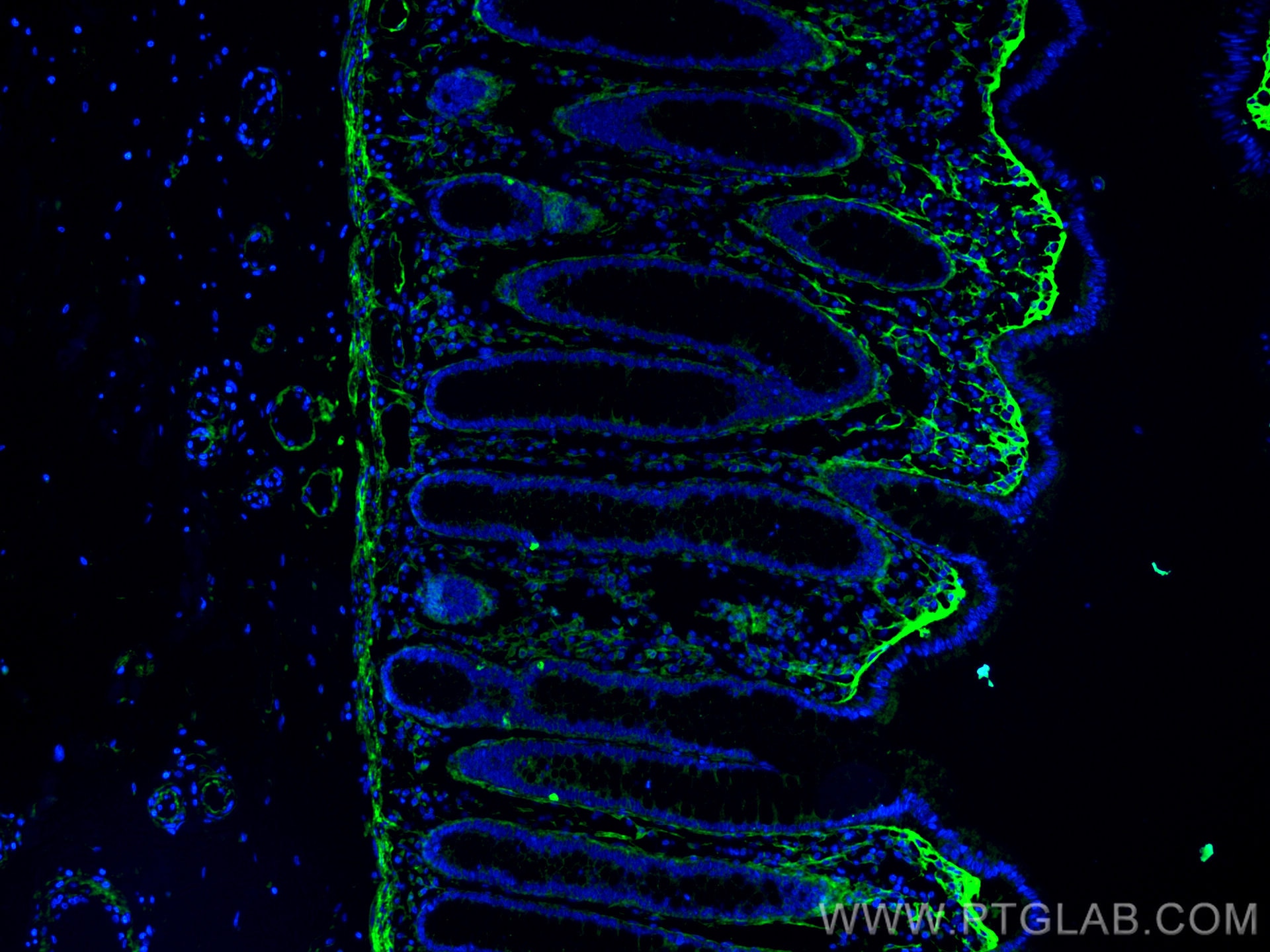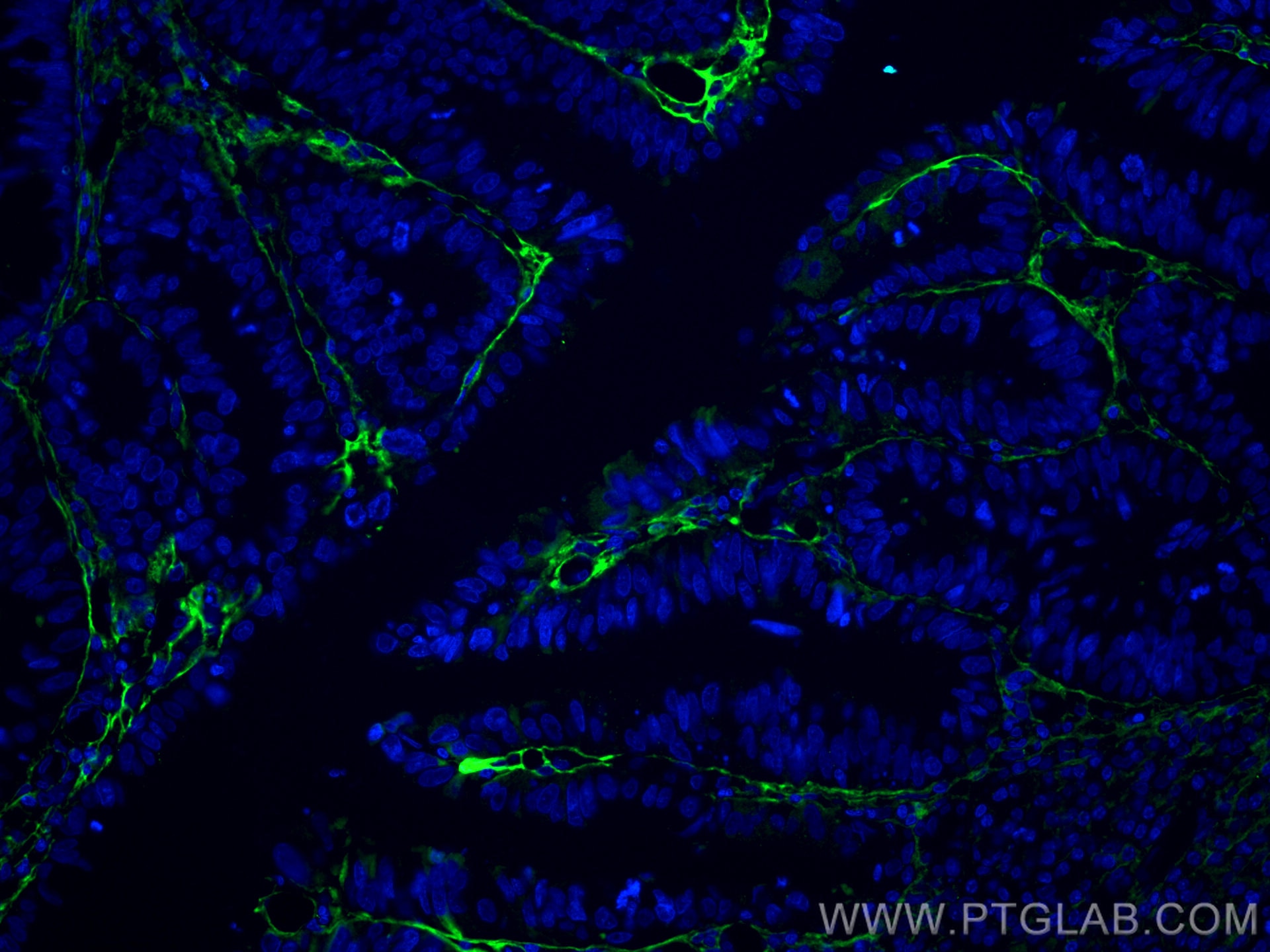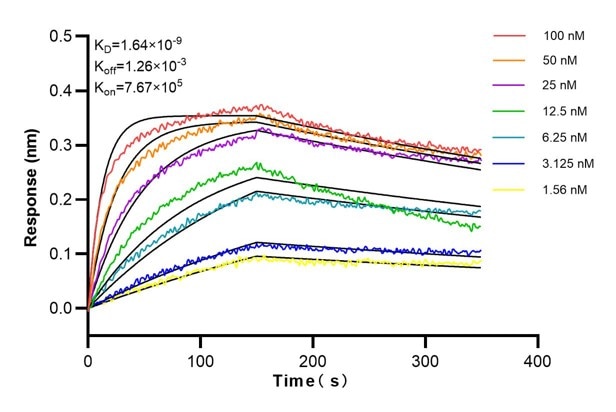- Phare
- Validé par KD/KO
Anticorps Monoclonal anti-TGFBI / BIGH3
TGFBI / BIGH3 Monoclonal Antibody for WB, IHC, IF-P, IP, Indirect ELISA
Hôte / Isotype
Mouse / IgG2a
Réactivité testée
Humain
Applications
WB, IHC, IF-P, IP, Indirect ELISA
Conjugaison
Non conjugué
CloneNo.
3E11D11
N° de cat : 60007-1-PBS
Synonymes
Galerie de données de validation
Informations sur le produit
60007-1-PBS cible TGFBI / BIGH3 dans les applications de WB, IHC, IF-P, IP, Indirect ELISA et montre une réactivité avec des échantillons Humain
| Réactivité | Humain |
| Hôte / Isotype | Mouse / IgG2a |
| Clonalité | Monoclonal |
| Type | Anticorps |
| Immunogène | TGFBI / BIGH3 Protéine recombinante Ag0241 |
| Nom complet | transforming growth factor, beta-induced, 68kDa |
| Masse moléculaire calculée | 683 aa, 75 kDa |
| Poids moléculaire observé | 68 kDa |
| Numéro d’acquisition GenBank | BC000097 |
| Symbole du gène | TGFBI |
| Identification du gène (NCBI) | 7045 |
| Conjugaison | Non conjugué |
| Forme | Liquide |
| Méthode de purification | Précipitation de l'acide caprylique/du sulfate d'ammonium |
| Tampon de stockage | PBS only |
| Conditions de stockage | Store at -80°C. 20ul contiennent 0,1% de BSA. |
Informations générales
TGFBI, also named as BIGH3, Kerato-epithelin and RGD-CAP, binds to type I, II, and IV collagens. TGFBI is an adhesion protein which may play an important role in cell-collagen interactions. In cartilage, it may be involved in endochondral bone formation. TGFBI is an extracellular matrix adaptor protein, it has been reported to be differentially expressed in transformed tissues. TGFBI is a predictive factor of the response to chemotherapy, and suggest the use of TGFBI-derived peptides as possible therapeutic adjuvants for the enhancement of responses to chemotherapy.(PMID:20509890) Defects in TGFBI are the cause of epithelial basement membrane corneal dystrophy (EBMD). Defects in TGFBI are the cause of corneal dystrophy Groenouw type 1 (CDGG1). Defects in TGFBI are the cause of corneal dystrophy lattice type 1 (CDL1). Defects in TGFBI are a cause of corneal dystrophy Thiel-Behnke type (CDTB). Defects in TGFBI are the cause of Reis-Buecklers corneal dystrophy (CDRB). Defects in TGFBI are the cause of lattice corneal dystrophy type 3A (CDL3A). Defects in TGFBI are the cause of Avellino corneal dystrophy (ACD).
